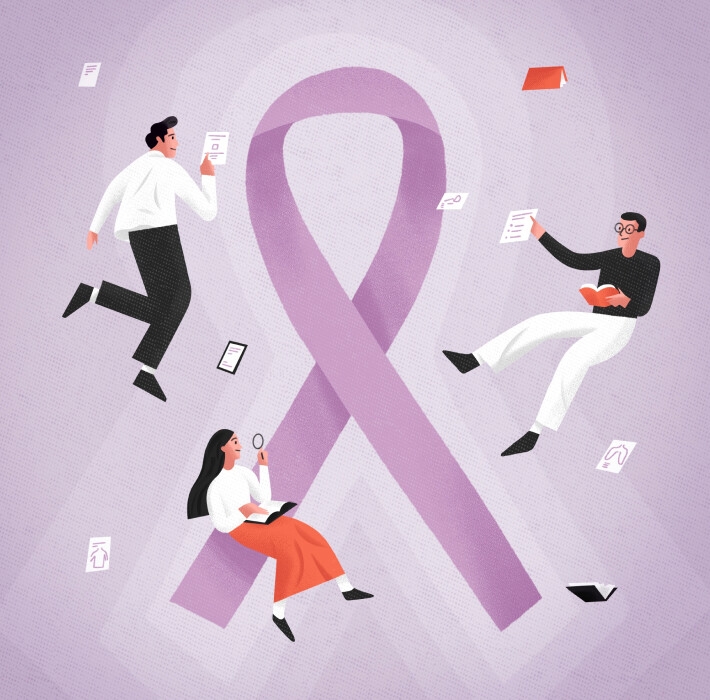Learning some basics is a good place to start.

Always seek the advice of your physician or your oncologist with any questions you may have regarding your medical condition or treatment, and never disregard professional medical advice or delay in seeking it because of something you have read on this website.
Events and Situations(6)
View all01
Eating Well
Loss of appetite and weight loss are especially prominent in persons with lung cancer. It can be caused by a variety of factors, including the disease itself, your therapy or medicine, or stress or anxiety.
02
Care After Lung Cancer Surgery
It’s important to keep in mind that you can’t just get “back to normal” after your surgery. It’s a process of taking small steps, one after another. This text will help you understand what recovery after a lobectomy looks like.
03
When Lung Cancer Comes Back
It’s a sad fact that the majority of lung cancers return between two and five years after the first diagnosis, which largely depends on the staging of lung cancer.

Coping with the diagnosis
The symptoms of lung cancer can have a substantial influence on your quality of life. Some symptoms may arise before or after the diagnosis, or during therapy. But everything is manageable.
Take it all under control.
step 01
Know Your Diagnosis
Lung cancer does not usually produce symptoms until the disease is well advanced. Even when lung cancer causes symptoms, many individuals may mistake them for other diseases.step 02
Know Your Treatment Options
It's critical to talk about all of your treatment choices and any potential negative effects with your family and treatment team so that you can make the best decision for yourself.step 03
Manage Your Symptoms
The symptoms of lung cancer can have a substantial influence on your quality of life. Some symptoms may arise before or after the diagnosis, or during therapy.step 04
Stay Active
Staying active and engaging in mild exercise has been demonstrated to help patients better tolerate, respond to, and recover from lung cancer treatments.
WHY WE STARTED THIS PROJECT
This website was created to give you guidance and support, whether you are affected by the illness or a family member or caregiver seeking information. Our aim is to support people suffering from cancer or facing this disease.
